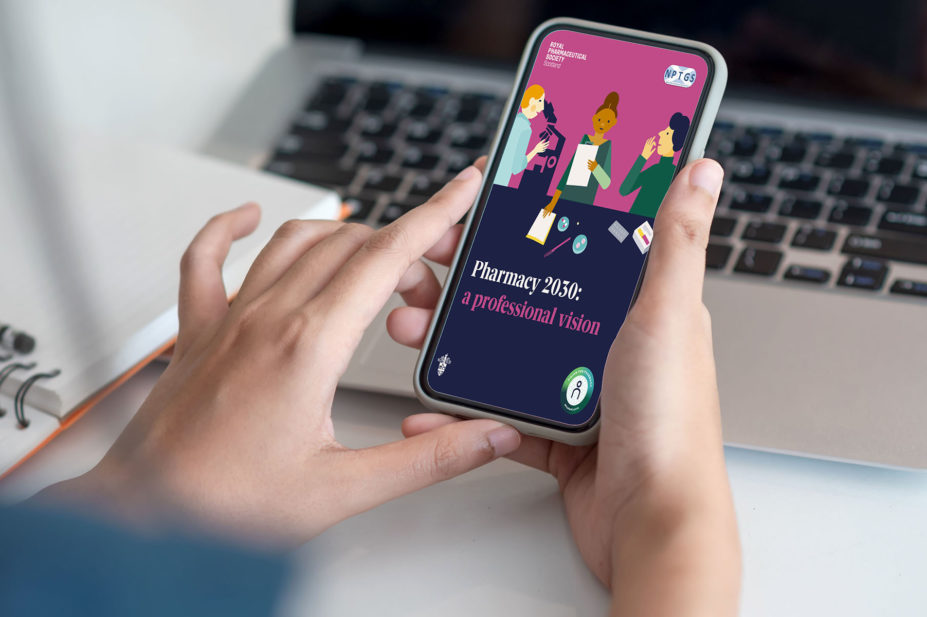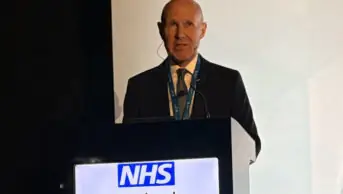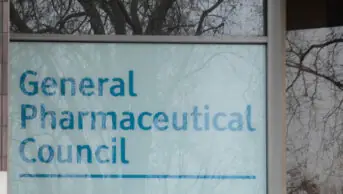
Royal Pharmaceutical Society/Shutterstock.com
Implementing the Royal Pharmaceutical Society’s (RPS’s) vision for the future of pharmacy in Scotland will enable pharmacists to be “better utilised to enhance patient care, experience and safety”, an influential member of the Scottish parliament has said.
Speaking at a parliamentary reception for the RPS’s vision, ‘Pharmacy 2030’, on 8 June 2022, Gillian Martin, convener of the Scottish parliament’s Health, Social Care and Sport Committee, described the document as “an outstanding vision statement which looks to the future”.
The vision, which was published in February 2022, having been jointly developed by the RPS in Scotland and the National Pharmacy Technician Group Scotland (NPTGS), sets out to “describe a future that is achievable for every pharmacy team in Scotland by 2030”, including the development of “a core generalist role for both pharmacists and pharmacy technicians” to promote flexible portfolio working.
During the reception, Martin added that it had been “wonderful to hear so many examples this evening, particularly from patients, of how pharmacists are already achieving so much right now”.
“By implementing the ideas from ‘Pharmacy 2030’ in full, ultimately, pharmacists will be even better utilised to enhance patient care, experience and safety,” she said.
At the event, Marie Todd, Scottish minister for Public Health, Women’s Health and Sport and a former pharmacist, said that the Scottish government was “committed to expanding the number of pharmacy independent prescribers” and had an “absolute determination to have an independent prescriber in every pharmacy”.
Todd also spoke of the need to “ensure pharmacy teams have the resilience and support to continue to adapt to the challenges facing them and wider society” as we emerge from the COVID-19 pandemic.
The reception was attended by representatives of pharmacy across Scotland, including members of the RPS’s Scottish Pharmacy Board, Community Pharmacy Scotland and NPTGS.
Alison Strath, chief pharmaceutical officer for Scotland and Jason Leitch, national clinical director of healthcare quality and strategy, were in attendance, as was Claire Anderson, president of the RPS.
Lisa Dunn, primary care pharmacy technician team manager for NHS Lothian, said the event was “quite a proud moment, because we’ve come on such a journey”.
“[Pharmacy technicians] are now up front talking to patients, giving them advice, making sure that medications are appropriate for use and making sure that patients understand what they’re taking.”
Hazel Jamieson, pharmacy operational services manager at NHS Forth Valley and a pharmacy technician, agreed, saying that “the role of the pharmacy technician has completely evolved over the last few years”, and adding that there are now “lots of clinical roles for pharmacy technicians”.
By 2030, the vision document says that pharmacy technicians will have an expanded role and “will lead medicines management processes, both in technical roles focused on the safe and efficient supply of medicines, and in patient-facing roles to support patients’ use of medicines”.
Clare Morrison, RPS director for Scotland, said it was “fantastic to bring together pharmacists, parliamentarians and partners from across government and healthcare to celebrate publication of ‘Pharmacy 2030’, and to begin discussing how to make the ideas within the vision a reality”. Morrison thanked both Todd and Martin for their support.
“Now we’ve brought everyone together, the hard work to implement the vision must begin. The RPS looks forward to working with all our partners across parliament, government, and health and social care to make this vision a reality, which we believe will be transformational for patient care in Scotland,” she said.
- This article was amended on 10 June 2022 to clarify that the remarks on ‘Pharmacy 2030’ were from a member of Scottish parliament, not the Scottish government


